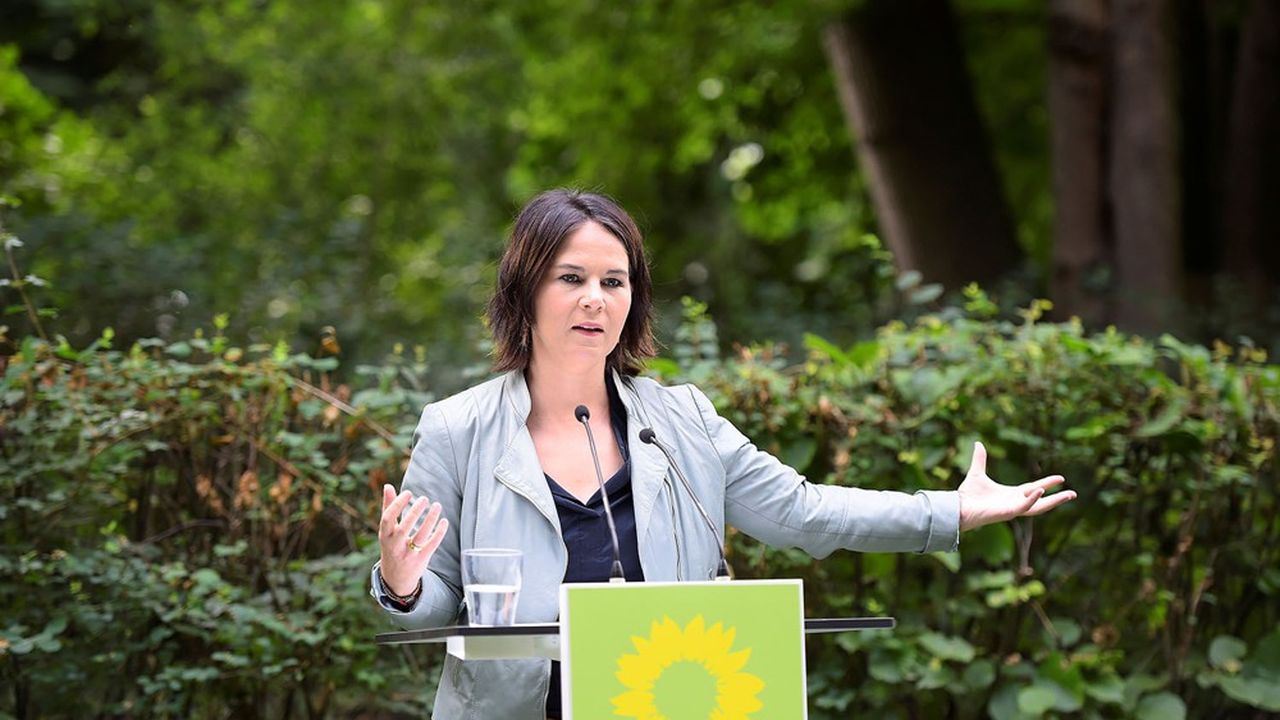The home straight will be the hardest. Green chancellor candidate Annalena Baerbock, who has been a top athlete, knows a thing or two about it. She no longer had the influence of her debut at the official launch of the Green campaign on Monday in Hildesheim. She chose an idyllic setting on the market square with half-timbered houses, in a small town in the geographic center of Germany and in the heart of its automotive industry. Less than an hour’s drive from the Volkswagen factories, Hildesheim is home to the headquarters of the OEM Bosch.
The candidate had to stretch a thin thread between the Greens’ climate program and the industrial issues on which undecided voters await her. For the time being, the Greens are trampling at 20% of voting intentions, far from the 28% of their start of the campaign, while the SPD is going up the slope.
Courageous change
As the report of the Expert Panel on the Climate (IPCC) is published, Annalena Baerbock is trying to regain control where the Greens can gain points. She calls in an interview to put in place a “courageous change in mobility”. “It is no longer enough to make fine speeches on Sunday” or to blame other countries, insists the candidate for the Greens, promising to make Germany “the first industrial nation to become climate neutral “.
A week earlier, the “immediate” program of the Greens for the climate, presented this time in the heart of a nature reserve between alders and butterflies near Berlin, was nevertheless cautious. Flanked by her running mate Robert Habeck, Annalena Baerbock insisted on financial and technical measures: the increase in the price of CO2, the exit from coal from 2030, the expansion of wind and solar energies and financial support for the energy renovation of buildings. More unpopular measures in Germany such as a 130 km / h speed limit on motorways have taken a back seat.
Key questions
For Joachim Lang, Director General of the German Industrial Federation, the message is clear: even if Angela Merkel’s party, the CDU / CSU, is “closer to the economy, they have surprising common ground with the Greens on some key issues for the future, such as the expansion of renewable energies and competitive energy costs ”.
While several regions of Germany have been hit hard by the effects of climate change with deadly floods, the differences of opinion between the parties tend to fade. Armin Laschet, the CDU candidate for chancellery, also announces a “climate neutral Germany” in 2045 and in a “socially acceptable and economically sustainable” manner.
Surpassing his competitors by a short head in the polls, Armin Laschet is already setting milestones for the future formation of a coalition. According to him, the climate must be the priority of the priorities of the future government and therefore under the direction of the Chancellery. The Greens, on the other hand, claim a future Ministry of the Environment which would have a right of veto.
–


